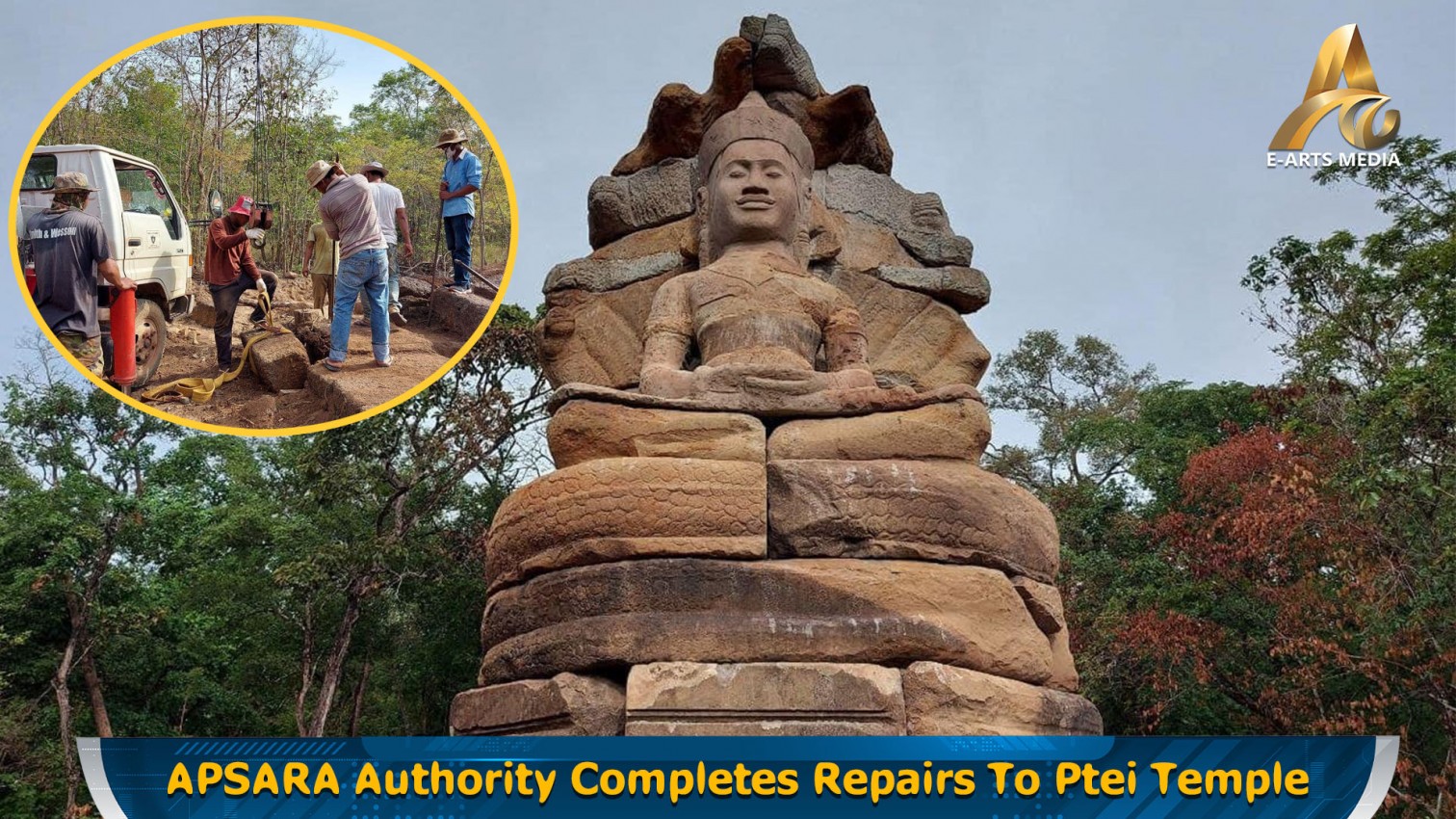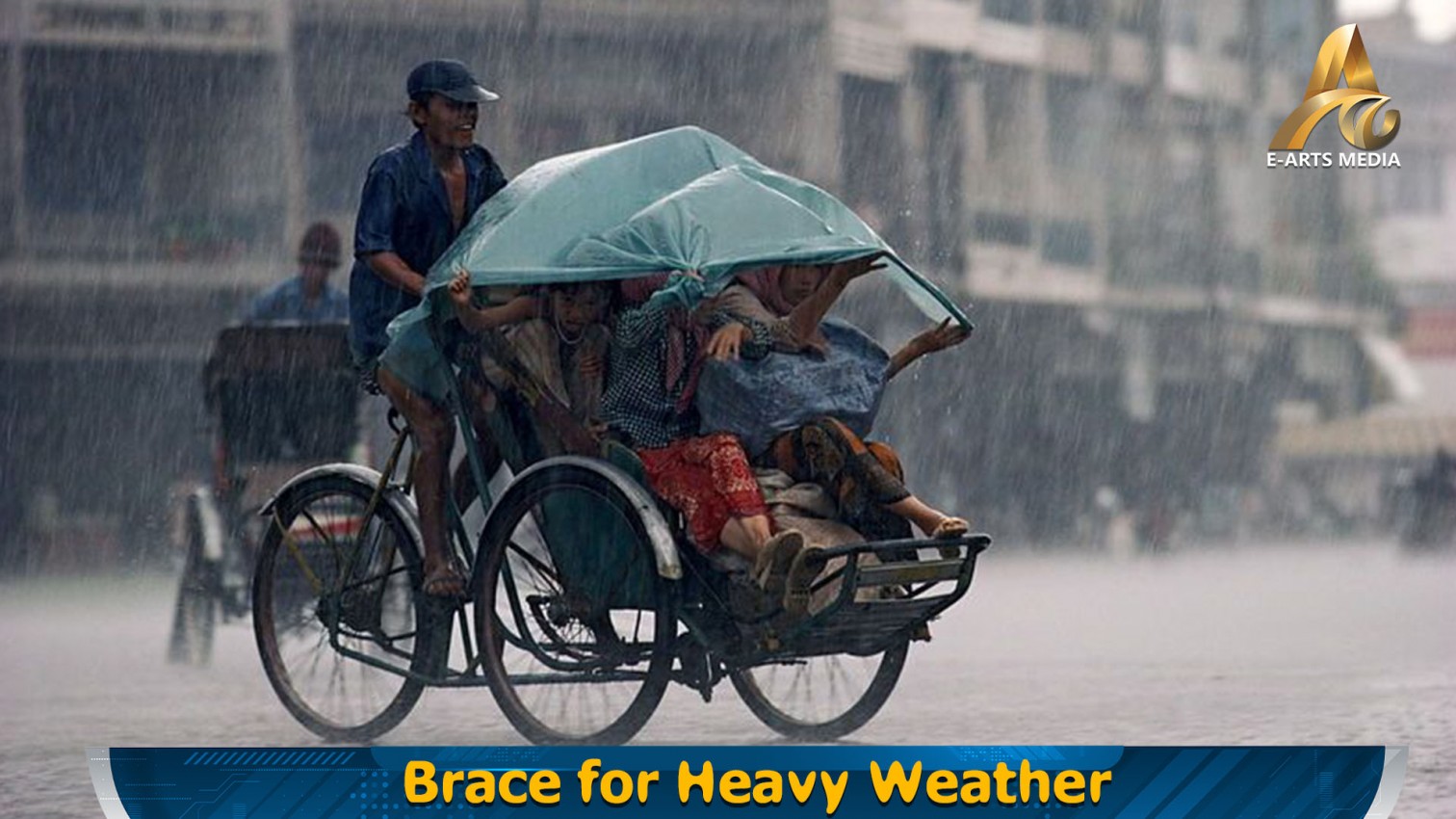PHNOM PENH: World renowned Japanese architect, Kengo Kuma, gave a special lecture under the theme, 'Cities and Human Society', at the Royal University of Fine Arts (RUFA) in Phnom Penh last Friday, 24 February 2023. Around 150 professors and students attended the lecture where he spoke about some of his past architectural projects, and also shared some information about his first project in Cambodia.
Professor Kuma's lecture at RUFA was organized through an arrangement with the Ing Foundation, who are behind the sustainable village project he is designing in Kampong Chhnang province. While on his latest visit to the Kingdom, he accepted an invitation from RUFA to deliver a lecture because he believes his latest project will be of great interest to young Cambodian architecture students.
“We started the project in Kampong Chhnang three, four months ago, and this project is very important for students because we are trying to show a new type of sustainable village in the countryside of Cambodia,” said Professor Kuma, while speaking with EAC News.
“The reason is, in many countries, young students are very much interested, not in the city, but... in nature and the countryside, and our project fits the interests of students, I believe.”
Born in 1954, Professor Kengo Kuma first established his firm, Kengo Kuma & Associates, in 1990, and is currently a University Professor and Professor Emeritus at the University of Tokyo. He has previously taught at Columbia University, Keio University and the University of Illinois at Urbana-Champaign. His firm is currently engaged in projects in more than 30 countries across the world.
Professor Kuma is widely regarded as one of the most influential architects of the 21st century and was also included on Time Magazine’s list of the 100 most influential people of 2021; the only architect to make it on to the list that year. Some of his major design projects include the Japan National Stadium (built for the 2020 Summer Olympics in Tokyo), the V&A at Dundee, the New Hans Christian Anderson Museum in Denmark, and much more.
Professor Kuma is also well known for his prolific writings on architectural design, and his main philosophy is rooted in opening up new relationships between nature, technology, and human beings.
During his lecture at RUFA, he placed particular focus on the idea of enriching the connection between the architecture and the surrounding environment, establishing a sense of harmony between the two.
He said that on his previous trip to Cambodia, he had visited the Tonle Sap and observed a special relationship in the land between the mountain and lake. As a result, his design for the sustainable village project in Kampong Chhnang conveys the significance of this topographical relationship and blends in with the environment.
He also spoke of the importance he places on recovering old building traditions and reinterpreting them for the modern era, giving the Japan National Stadium as one example. The stadium is located in the center of Tokyo, by a large forest and shrine, so he proposed for the structure to be made of wood in order to honor the natural building material and reflect its importance in traditional Japanese buildings, as well as to center on the sustainable practice of wood harvest and tree planting.
Along the same lines, he said his design for the Kampong Chhnang village project takes inspiration from traditional Cambodian buildings, as he believes it is important that the buildings look and feel Cambodian. On a more personal note, he shared that he is interested in seeing how his design sensibility may change while encountering the environment in Cambodia.
“Simply said, I like to travel to beautiful places, and Cambodia is a beautiful place, Kampong Chhnang is amazing,” said Professor Kuma. “In that kind of environment, I always try to create harmony with the place. The design… should be the result of composition with the place.”
“This is my first project in Cambodia, and first dialogue with Cambodia, so it can change my design. I want to change myself based on the encounter with the place. I hope Cambodia can lead to a new direction for my design, and [I believe] Kampong Chhnang is very important for us,” he added.
On the occasion of Professor Kengo Kuma's special visit, the Ing Foundation kindly donated US $5000 to RUFA, along with 200 cases of bottled water. Japanese company, MARUWA Japan Co. Ltd., who are also involved in the Kampong Chhnang project, donated an additional US $1000 to the university as well.






























